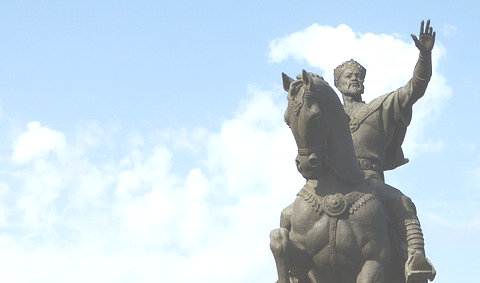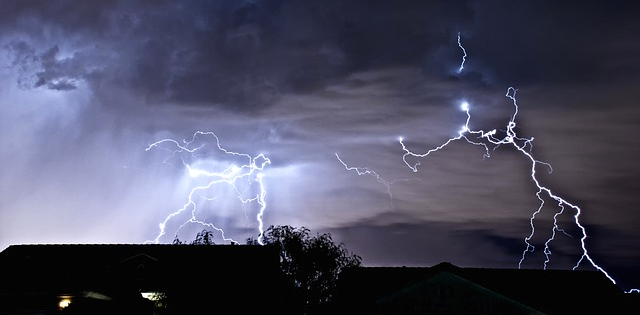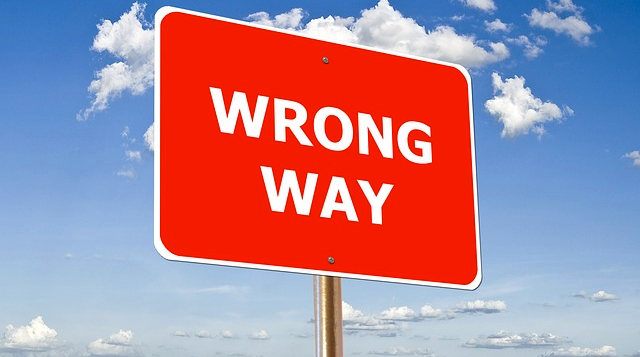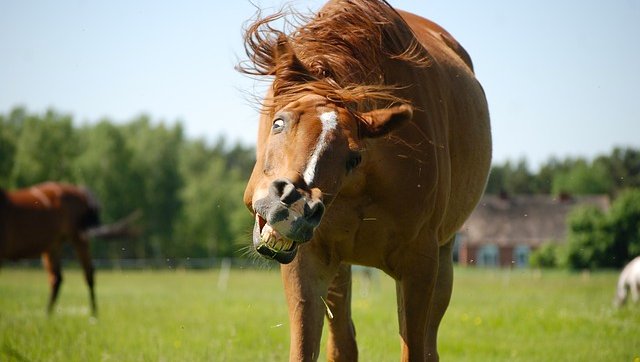
(Way With Worlds Runs at Seventh Sanctum, Muse Hack, and Ongoing Worlds)
Stories, games, and all fictions are about people, about characters, about what they do and why. They may not be like us, we may not like them, but that’s what’s going on. We’re watching people (even if not human) do stuff to get results, though we may put it in more colorful ways.
Goals, methods of reaching them, and results are, in a way, everything a story is about. In the end, you’ve got to save the prince so you can throw the one ring into the fiery pit of the starship engine to bypass the alien invaders before your ninja rival does.* No goals, no methods, no results, no story, no interest.
Therefore, your world has to include characters that have believable goals, ways of achieving them, and results.
Which is obvious.
And, as you’ve heard me say many times, and doubtlessly will again, obvious is the problem.
Let’s dive in. (more…)

(Way With Worlds is published at Seventh Sanctum, MuseHack, and Ongoing Worlds.)
In a strange bit of irony, Im still talking about originality here. Seems sort of weird to keep covering a subject on being more original by not shutting up about it, but here goes.
So there’s one more subject to cover for Originality, of that hard to find, illusionary yet somehow real, quest for “Originality” that so many of us seek, few seem to find, and fewer seem satisfied with. Perhaps thats the point- if we’re not always looking then we’ll not be original. Whatever that is.
In fact, the whole subject is “we.” Us, me – and specifically you.
As noted, I consider “originality” largely illusionary, something whose specter hovers over us only because we believe in it so much. What is more important in originality and world building is to bring your world to life. Even the most “unoriginal” world brought to life will intrigue and involve people. A seemingly boring person is probably far more interesting than a mannequin.
You bring the world to life.
Too many of us resort to tropes. to well known story elements, in our world creation. These bits of social, cultural, and literary elements are easy to use, but rarely connect and come to life unless you do things right. Frankensteining together a setting of previous pieces, much like the original Frankenstein, tends to result in trouble and is something not truly alive. It’s up to you to make it work.
Again it all comes down to you.
So if you want originality, want a world that’s alive and memorable and involving, you’re what makes it all unique. Original – whatever that is.
You’re the secret ingredient to get a good world, and perhaps even “originality” whatever rh shell that is. No matter what you make or do the one thing that no one else can do, no one else can bring in is you.
So let’s ask just what you bring to your world and your tale and your quest for originality and uniqueness.
A Unique Perspective
No matter how common your life may seem, no matter how boring it may seem, your life is your own. How you see things, how you view them, how you interpret them is going to be something no one else can have. Your world and all the works derived from it will reflect that.
Think about how you see something affects stories and world buildings. You may have a unique view on some given relationships, or a different take on cooking, or can relate to a character in a way few others can. Your work is infused by how you see things – and in turn, that affects how people see your setting.
I’m not saying your life is going to be fascinating or interesting, nor that your take on things will be as well, but it will be yours. Work with that because you know it better than anyone – and that lets you use it to infuse life into your creations. Real life.
Take It Farther: You can take this farther by understanding the unique view you bring to your world and world building, and the tales and games that follow.
Unique Skills
Then there’s your unique skillets that inform your world building and your creativity.
Now skills are important in world building because:
- You can write about people that use your skills. Ever read a story where someone clearly didn’t know the lifestyle and life experiences of some people? Yeah, you can avoid that embarrassment in your settings.
- You understand how that skill-based part of the setting you write may work. In turn, your world becomes more believable. For myself, I’ve found my love of cooking added an edge to understanding setting design.
- You might be able to use the skills right in your world building, writing, game development and so on. If you’re good at explaining technology, if you’ve got a flair for the poetic, if you know the right words for something, that works right into your world building and how you communicate it. Imagine being a programmer who writes games, in a cyberpunk setting, so you can make it even more believable as well as well coded.
- You have unique experiences with your skills, job, etc. that can provide inspiration. Much as you have a unique perspective on things in general, your hands-on experience may give you many ideas. One of my friends with military service used that experience to take a serious look at military SF and it’s many assumptions, and come up with new, unique take that was more informed.
Sure you may not think you have any unique or interesting skills. You may write, but so do many others. You may cook, but so do many others. You may code, but so do many others. However this is your unique set of skills, your perspective, and your huge list of abilities, knowledge, and talent that you can mine for a better world building experience.
Take it from a Program Manager who cooks vegan food and writes about Geek Careers and Creativity. We’re all unique in what we do, in some way. if only in combination.
Take It Farther: Ask what skills you have that relate to characters or settings in the world you build – can you better understand certain parts or better create certain characters. In turn, ask if any of them can just help your world building or how you implement the world.
Unique Experiences
Any writer saying they don’t use personal experiences in their world-creation and creativity is ignorant or lying. I’ll give you the benefit of the doubt on “ignorant” if you say you don’t do it.
We all use our personal experiences in our art. We really have no choice because our experiences are how we assemble a consistent story of our real life, so in turn we’ll use them in our world building. Our broken heart, our feeling that school is frustrating for so many, our knowledge of working in an ER, all those experiences inform what we make.
So we might as well admit it, realize it, and put it to use as world-makers.
Our unique experiences – and much like our perspective, they really are completely unique at least in combination – inform everything we do. We can’t get away from them because they’re us.
There’s a combination of events, unusual happenings, and so on that is unique to you. Use that in your world creation to bring it to life and make it “original” by realizing it and using it.
Take It Farther: What experiences do you have that stand out in your mind? Are any relevant to your world building? Are any “common” but you had something about them that made them unique?
So Go On And Be You
These things, perspective, skills, and experience are yours. No one has quite the background you do – and the combination of elements is probably very unique.
Even the things that seem common to you are probably unique in combination. Sure being a computer programmer may not seem unique, being into techno may not be unique, being into surfing may not be unique, and liking to do baroque may not be unique. But a techno-loving programming surfer who can make a mean set of ribs is comparatively rare.
Realize these things, put them to use, and appreciate them. They’ll help you grow as a world builder, provide unexpected tools, and finally give you another shot at worrying less about originality. When you appreciate your uniqueness, you might see just where your work is unique and “original.”
And stop worrying about it and get back to work making worlds.
– Steven Savage
Steven Savage is a Geek 2.0 writer, speaker, blogger, and job coach. He blogs on careers at http://www.musehack.com/, publishes books on career and culture at http://www.informotron.com/, and does a site of creative tools at http://www.seventhsanctum.com/. He can be reached at http://www.stevensavage.com/.

I’ve talked about tropes as something that can kill a world because they’re unreal – yet at times tropes aren’t a problem. Let’s explore. (more…)

(Way With Worlds runs at MuseHack, Seventh Sanctum, and Ongoing Worlds)
Every worldbuilder, author, artist has had that moment. That moment where originality seems to be a fleeting illusion.
Perhaps they feel that they can’t seem to do anything original. Every idea they have seems done (and perhaps done better). The fear of being accused of derivation. The sense everything they do seems to be alike.
Perhaps they feel there just isn’t anything left. Everything has been done, there’s nothing left to do.
So let’s address that issue that many a worldbuilder faces – how do we deal with the need to be original? Fortunately there’s an easy answer.
Screw originality, who needs to worry about it?
Pointless Quest, Pointless Question
The need for originality that seems to trouble many a creative person, reminds me a lot of writer’s block. Writer’s block, in my mind, really is something that only has power over us as we name it – and having named it we’ve given it power and made our fear of it a trap. Originality is a case of where we have this vague idea of something and, feeling we must find it, fear its lack.
It’s all fear with little substance.
Let’s ask what originality is, anyway.
Something never seen before? Impossible because there will have to be some similarity in your ideas or your world to something or no one will ever have an idea of what’s going on.
Something new? New may be a matter of perspective. I’m sure with enough work anyone can find a similarity between two ideas. I once jokingly said the anime “Attack On Titan” and the surrealist Cartoon “Adventure Time” are the same – a shapeshifter and a combat expert in a post-apocalyptic future helped out by a slightly off-kilter scientist. So what really is “new” or “different”?
In fact, sometimes the unoriginality is original in another way. I’m reminded of an episode of the show Remember WENN called “Between a Rock and a Soft Place,” where the crew of a small radio station did a show called “Same Dane, Private Eye.” However this hardboiled thriller was really a retelling of Hamlet, with the prince as a two-fisted detective. Original or not? Original in combination of unoriginal ideas? Your guess is as good as mine.
Something where there’s nothing else like it on the market? Depends on your idea of the market – and many a market don’t seem to care about originality.
So I’ going to suggest “originality” is not a solid thing, it’s a somewhat relative, situational term. Useful, indeed, but something that’s better as a whole because it’s parts don’t exactly some up. A map not a destination.
The thing is when we treat originality as a solid thing, then we seek something that isn’t solid. When we don’t find it (and worse, when we’re in a funk, it can be harder), we become depressed or angry. But we’re angry something we can never truly be said to have, because the term isn’t solid.
So stop worrying and get back to worldbuilding.
The real question of your setting is “Does It Work.”
Integration Over Consternation
So really the question a good worldbuilder should be asking is how do their ideas hold together. Does the setting make sense, is the history believable, does the magic work, is the technology properly explained. Does the world functioning a way that people “get it” – and thus they can buy into it.
See, good worldbuilding means creating a setting that makes sense and functions, that people can grasp intuitively. It doesn’t have to be “original.” In fact it may be rather unoriginal. You could even be exploring common ideas so originality isn’t on the agenda.
But if it works and comes to life, people can connect with it.
Part of the fear of unoriginality (but only part) is that one is resorting to tropes and common ideas. Dead concepts, long ago mummified and propped up in many a story, wayposts saying “here’s your big ‘ol standard plot.” We’re afraid, in short of a world that’s just “here we go again.”
But when your world comes to life, when the ideas tie together, then it’s not a world of tropes – it’s a good, solid setting. You may see things that have been seen before, but it’s alive, and engaging, and interesting. It’s also yours, your unique vision, spinning away like an orrery.
Tropes are uninteresting and laughable when dead. But when alive . .. then they’re just common ideas working.
Imagine a bog-standard fantasy tale with your usual ripoff D&D party – the fighter, the wizard, the thief, and the cleric. Sounds boring and stupid. But imagine in brought to life, with magic versus religion, a warrior’s code ruling a person’s life, a shadowy criminals past haunting them . . . and then you have a story that could be interesting. Because it’s alive, even if the individual parts seem like tropes and stereotypes.
Well, seem like tropes and stereotypes until you realize how lively they are. Maybe tropes are what happen when you rip archetypes and common concepts out of their settings and just have their ghosts haunting your works.
Stop Worrying
So stop worrying and go build your damn world. Make it work, live and breathe. Make it function. Make sure it makes sense.
You’ll make a better setting, have more fun, worry less, and get more done. Let Originality be something that’s a laudable goal, perhaps even a good measuring stick, but one you measure by the liveliness of you setting, and one that you on’t let dominate you.
Besides, maybe when you focus on making that world well, originality will take care of itself, because we all know when our minds really get going that’s when the real surprises start . . .
Steven Savage is a Geek 2.0 writer, speaker, blogger, and job coach. He blogs on careers at http://www.musehack.com/, publishes books on career and culture at http://www.informotron.com/, and does a site of creative tools at http://www.seventhsanctum.com/. He can be reached at http://www.stevensavage.com/.

(Way With Worlds runs at MuseHack, Seventh Sanctum, and Ongoing Worlds)
My friend Serdar, in writing Flight of the Vajra (which I edited, I admit, but I enjoyed the hell out of it) is fond of noting the plot happened when he realized his setting didn’t hold together. The novel is basically about things not working, or as I like to put it ,having more questions than answers is bad, but more answers than questions is worse.
What Serdar says sounds both wise and flies in the face of a lot of the attitudes heavy Worldbuilders may take. We want things to make sense. We want it to hold together. We want it to work.
But sometimes the tale is what happens when it doesn’t work. Maybe it’s a disaster. Maybe it’s a transition. Things are always in transition anyway.
So before you look at your latest world, at your latest change, and decry how you can’t see how the kingdom survives, or the galaxy prospers, or whatever remember that you may have just found the story you were looking for. The world breaking is the story.
The problem however is that you don’t know if you’ve done bad worldbuilding or that you’ve created a good but unsustainable setting. Maybe the setting falling apart is because your exquisite sense of detail has led to an inevitable conclusion – or maybe you just did a crappy job.
So it’s time for some questions.
Question 1: Why Does It Break?
First of all you have to ask just why your setting seems destined to fall apart. I mean if things are going to break down you have to know why?
- If it is because things just don’t seem to make sense, then the fault is probably yours.
- If the falling apart occurs because of elements in the setting, it may just be an unexpected feature. If you see a race war between elves and dragons as inevitable despite a fragile peace that was hard-won you don’t have a problem – you have a game, a story, or a RPG session
Question 2: How Did We Get Here?
You look at your setting and realize it’s going to go down in flames. Is this a story to tell or is this a mistake on your part? Part of the question is asking why this is all happening.
- * Are there reasons for the setting to get to the point f degrading that make sense in the context of the world? Can you explain why the Star Empire would survive the first hundred years but not the next two? In short, can you see your setting existing, but eventually falling apart.
- * If you can’t explain how your setting would get to the point where it would then fall apart you have a problem. Essentially the setting has shoddy infrastructure anyway and falling over is your mistake, not a feature. It should never have been big enough to fall apart.
Keep Asking
Those two questions can essentially tell you if you have a story – if the breakdown makes sense and the setting is reasonable up to the point of the breakdown. With both those traits you have at tale – without, you have mistakes in your setting.
However, maybe that’s not what you want to great in a story or game or comic . . .
But I’m Not Interested In Writing It Falling Apart
Sometimes we discover we’re not writing the tale we wanted or crafting the game we intended. That’s a bit of a tough call. A few pieces of advice I can provide is:
- Change perspectives. Maybe the giant collapse is something you can write from a different perspective then intended. Maybe your perspective is the problem, and once you’re in a character or two’s heads the setting’s problems are things you want to write.
- Back up. Back up a few years before everything goes straight to hell, and tell your story from there – though the coming collapse may annoy you.
- Jump forward. Jump up your timeline and see if the setting eventually evolves to the kind you want to write.
- Re-engineer. The hardest thing to do is re-engineer your setting to remove the relevant apocalypse. That is something that’s a bit challenging and potentially can tempt you to dishonesty. I’d say go for it, but if you can’t truly do it, hen you have to conclude your setting is what it is.
- Quit. Not recommended. Staring over is kind of coping out and you have all that hard work.
Your call on these things. Though I’m not up for quitting – after all if you ram through you may find you want to write the end of the world after all.
It’s Part Of What You Do
Finding your setting is going to fall apart is one of the challenges of worldbuilding. It can shock us and surprise us and derail us.
However it’s also one of the benefits of the craft. Unexpected findings, challenges, settings coming to life are part of the magic of worldbuilding. Though it may alter our lans, at least it’s doing so in a way that truly surprises and inspires and comes to life.
Well, assuming its because the world was well built, but you get the idea . . .
Steven Savage is a Geek 2.0 writer, speaker, blogger, and job coach. He blogs on careers at http://www.musehack.com/, publishes books on career and culture at http://www.informotron.com/, and does a site of creative tools at http://www.seventhsanctum.com/. He can be reached at http://www.stevensavage.com/.

(Way With Worlds Runs Weekly at MuseHack and Seventh Sanctum)
So last time I noted how David Brin had gotten me discussing the idea of the Idiot Plot or the Planet Of Morons – the idea the hero(es) are the only things saving the world, which is also corrupt and stupid.
The thing with this plot is it degrades society – and degrades the characters and the world. It makes the heroes stupidly unbelievable, it makes the villains shallow or uninteresting, it makes the world improbable.. It’s in short dumb and inaccurate and psychologically toxic when it’s everywhere.
But I’d like to expand on this in what is hopefully my last Heroes and Villains post on worldbuilding. Yeah, I know, unlikely, but still.
Namely, if you don’t resort to the Idiot Plot and the Planet of Morons (and you won’t, right?), here’s my thoughts on how to make the story or game interesting while preserving world integrity. Because you do want to engage the reader, but you also want to have a good, believable world setting.
First, let’s get to the heart of the matter. (more…)

(Way With Worlds runs at Seventh Sanctum and Muse Hack)
Ironically I was about to wrap up my heroes and villains series when David Brin dropped an asteroid-sized essay in my lap.
He notes rather brilliantly that a huge part of our media is the Idiot Plot, that the story is often about a few people who save the world because everyone else, all of society, are a bunch of idiots if not evil. It’s not just Suspicion of AUthority, he notes its socially corrosive.
Now Brin’s article on its own is well worth reading. I’m not going to recapitulate it here because he did a great job. Also I probably couldn’t do it justice.
But I’m going to address the issue as a matter of worldbuilding, because the Planet of Morons, the Idiot Plot, is a serious problem for worldbuilding. That’s what I cover.
Also this idea doesn’t work for building a world. (more…)

However, after awhile, it seems that it really becomes boring and trope-ridden. We talk Good and Evil but don’t think about it, signifiers are thrown around randomly, and titles like “heroine” or “villain” seem to stand in for actual moral issues. It’s mummifying good and evil, propping up heir bodies, and treating them as marionettes.
A friend of mine once noted that smoking was always used as a sign of evil in media. That was an example of how sometimes good and evil just becomes a pile of signifiers.
So when we think Heroes and Villains, here’s a bit of a challenge of you.
Stop thinking Good and Evil.
Start Thinking Why And How. (more…)

In fact, we know it from worlds and stories all too well. It’s a common part of our heroes – but also in villains who redeem themselves or at least have some integrity
You know the drill:
- The heroic sacrifice of some starship captain or engineer that guides their ship into a deadly run on the enemy – and may not even be saved at the last moment.
- The person who dies for a cause, getting nothing in return.
- The hero or heroine that trows themselves on the grenade-equivalent or detonates the bomb-equivalent by hand to save his or her buddies/country/world (pick at least one).
- The villain, who at the last moment, realizes what a giant moral vacuum they’ve been and dies to correct it.
You can easily name at least a half-dozen other examples. It’s woven throughout literature, through film, through comics, through legend.
However there’s time the sacrifice seems . . . off. It sets your teeth on edge for some reason. It seemed false. It seem contrived. It didn’t work for some reason.
And because it didn’t work, it bugs the hell out of you as a reader or player of the game or whatever. Something is wrong in the world.
In worldbuilding, when self-sacrifice happens, like anything else, it should have a reason. If there’s no reason for it to exist, it’s just going to come off wrong. Yet at times, it seems we shoehorn it in there, or it seems to fit yet . . . it doesn’t.
Here’s some warning signs to look out for that tell you that the brilliant self-sacrifice of your hero, or the touching sacrifice of your reformed (but now exceedingly dead) villain, aren’t.
Tropeagedddon
Sacrifice and self-sacrifice are tropes in literature and settings, and thus done a bit too easy. We throw in something into our plots and panels and game options that “fits” as it fits what we think should fit, but it just doesn’t work in our world.
It’s ay, way too easy to throw in a scene of self-sacrifice, just as sure as it is to put an all-too-familiar action scene in a movie, or a stereotype into a story. Sacrifice is a language people understand – but like selecting the wrong word in a conversation, it doesn’t work if it’s not appropriate.
Look out for putting in acts of self-sacrifice just because “the situation calls for it” or “it fits the story” because it should fit the characters and the world.
Selfish Motives Of The Character
Self-sacrifice is an act of transcending the self for something greater- it’s about giving up literally everything one has for a reason greater than one’s own life. Now those reasons may be questionable or crazy or ephemeral, or just plain stupid (at least to the survivors), but the act of self-sacrifice is literally giving up of self.
It’s not the same as sacrificing the self for something.
However the character motivations may really turn out to be selfish. Consider other motives for self-destructive behavior:
- In order to make someone sorry.
- In order to become famous or remembered.
- In order to escape a problem by appearing to “go out” in a heroic manner.
- To fulfill fantasies of martyrdom.
- As an act of self-hatred, essentially as suicide that doesn’t look like it.
Now these motives may indeed fit whatever character you’re creating who’s about to detonate the McGuffin Orb or whatever. If that fits, then by all means it’s consistent with your setting for them to go out. But it’s not heroic, it’s not noble – and frankly other characters will probably suspect.
Now that could be fascinating (“he saved the world, but he was also an egomaniacal jerk, how do we react”) but be careful of dressing up self-serving sacrifice as something else. It will grate horribly.
Selfish Motives of the Author
Now in no way do I want to cast aspersions on you and your world. But sometimes let’s face it, we do stuff in our stories because we like it, and sometimes that includes how we write characters, and how they die.
We can be motivated to put in an act of self-sacrifice assorted ways:
- To just get rid of an inconvenient character. That’s coping out, and believe me, people will notice.
- Because the character is a Mary Sue/Gary Stu/Author’s pet and we want people to love them/feel sorry for them. Usually it’s transparent enough it annoys people.
- Because we wrote ourselves into a corner or built or world i a way we didn’t expect. Usually a big boom solves some of that, but there’s only so often you can play Crisis On Infinite Earths before you kind of strain your credibility.
When it comes to really good worldbuildng, I think we have to take pride in our crafting a good world, and learn how to make it work. Inserting our own motivations in too far, violating our own continuity, damages our settings. In the case of something as deep as self-sacrifice, it can be outright annoying.
Giving Up The Wrong Sacrifice
So, when your heroes and villains make the ultimate sacrifice, make sure it fits them, that the reasons are good, and that t fits the setting. Sure they may be wrong, stupid, suicidal, but at least portray them properly. It brings a truly visceral feel to the story and avoids cheapening your scenes.
Best of all, when you deliver a tale or a game or a world where these moments of self-sacrifice truly ft, it keeps those involved int he world, the readers and gamers, engaged. It makes the world real and organic and alive – even when characters in it are dying.
That after all is what you’re trying to do.
Steven Savage is a Geek 2.0 writer, speaker, blogger, and job coach. He blogs on careers at http://www.musehack.com/, publishes books on career and culture at http://www.informotron.com/, and does a site of creative tools at http://www.seventhsanctum.com/. He can be reached at http://www.stevensavage.com/.

However, there’s a flipside issue I want to address, that of Incompetent heroes and villains. Though I find the former more common than the latter, it’s still an issue with good worldbuilding.
Ever wonder how the hell this person is going to save the world, or how this moron managed to threaten it? Is their stupidity celebrated as a kind of victory? Does the world builder seem to want you to celebrate it?
Welcome to the world of the Incompetents, the dark side to Omnicompetence
A Familiar Tale
You know the story. The hero who manages to save the day despite being stupid/ignorant/etc. The villain with . . . really nothing going for them except they are somehow a threat. Some characters are even portrayed at being so good at what they do because of their stupidity, which is not a trait you want in doctors, programmers, or scientists let alone your hero and their archnemesis.
Sometimes this is played for laughs, which is fine in a comedy – much as an Omnicompetent character can also be played for laughs. In this case it may well fit your focus.
But other times, I think you know what I mean, the characters successes are so outrageous and unbelievable that you really don’t buy them because they are explained by (and not defeated by) their own incompetence. Just as surely as an Omnicompetent character distorts a world, so does a protagonist and/or antagonist who is so dumb you’re not sure they should be allowed to drive, let alone use the Orbital Death Ray.
These sound a bit like the classic Holy Fools, but I have a better name for them . . .
Unholy Fools
In many cases, I think these characters are distorted versions of the classic Holy Fool, characters that seem weird or dumb or foolish, but there is something greater at work. Somehow they succeed despite or even because of what makes them foolish, and yet you wonder how incompetent they are. They’re paradoxes who may be straightforward.
There’s a beloved tradition of these characters. Sometimes their foolishness is a lack of the B.S. others adsorbed. Others think differently. Yet others mess with people to make a point, appearing foolish. Finally some are ambiguous, and that’s the part of the story, making you wonder.
Captain Tylor of the anime series is a great example of a modern Holy Fool, and his very ambiguity is part of the story. Discworld has several Holy Fools who you later on find are not fools so much as some of their personality traits that seem to be flaws aren’t (not spoiling here).
The Holy Fool, frankly, is a damn hard character to create. If you’re a worldbuilder, you have to understand them inside out when the point is they’re mysterious. If you can do it right more power too you.
However, the Holy Fool sometimes seem to just be the Lucky Dumbasses who are annoying. Let’s call them Unholy Fools.
Thinking Like Children
What we often end up with in these “reverse Omnicompetents,” the Unholy Fools, are often childish characters who succeed for reasons that seem to be dumb luck or their dumbness is somehow a virtue. It’s not that they have a virtue that appears to be dumb (often a classic element of the Holy Fool or Holy semi-Fools), or that they lack a negative complicator, it’s literally they’re just stupid.
This happens in comedies, of course, but can happen in a lot of tales as well. The character who “is just doing their job” or “doesn’t know anything about that, but I know how to punch something” and so on is an Unholy Fool. They succeed supposedly as they’re not smart.
They’re not ambiguous, or differentially smart. There’s not that level of thought put to them.
I think characters like this are popular and easy to fall into as:
- They don’t make the readers or gamers feel inadequate.
- They thumb their nose at supposedly smart/talented people.
- They can be good for a laugh.
Of course after awhile the Unholy Fool here sort of grates on people because they are dumb, their successes aren’t believable, and . . . they don’t have reason to be the way they are. The successful idiot too easily is just another authors pet, verging on Mary Sue/Gary Stu territory. In fact, I’d say the Unholy Fool is more likely to be a Mary Sue than many Omnicompetent characters.
An, of course, a worldbreaker. Because, in the end, they’re just successful idiots for no reason
Did You FalL Into The Trap?
So how do you detect you’ve fallen into this trap?
Well first, as noted these Unholy Fools are worldbreakers. If you can’t explain their success, their like-ability, etc. that should set off your worldbuilding alarms. In your gut you probably know it.
Another sign is finding you didn’t think them out as well as you thought. If a character seems to coast, things seem to be “too” good for them despite their flaws, you may have fallen into this trap as well.
Finally, I think Unholy Fools are characters who in their incarnations, appeal only to a subset of people. If you notice some folks dislike a character and you don’t get why, yet others rally to defend them, that may be an indicator.
The best test simply is “can you explain why your character triumphed the way they did”in a manner that works in the world. Te audience may not know (that’s part of the fun with HolyFools) but you need to.
Comes and Goes
It’s odd writing this as I find when I first wrote Way With Worlds I didn’t see many Unholy Fools. Later I noticed quite a few of them popping up, I suspect as they can also be Mary Sues/Gary Stus and they appeal to anti-intellectualism. My guess is these kinds of characters and their appeal come and go with social tends as well.
So perhaps in another decade or two, this may get a laugh as people wonder “oh, who would write that?” But a few decades later . .. well, who knows?
Steven Savage is a Geek 2.0 writer, speaker, blogger, and job coach. He blogs on careers at http://www.musehack.com/, publishes books on career and culture at http://www.informotron.com/, and does a site of creative tools at http://www.seventhsanctum.com/. He can be reached at http://www.stevensavage.com/.




